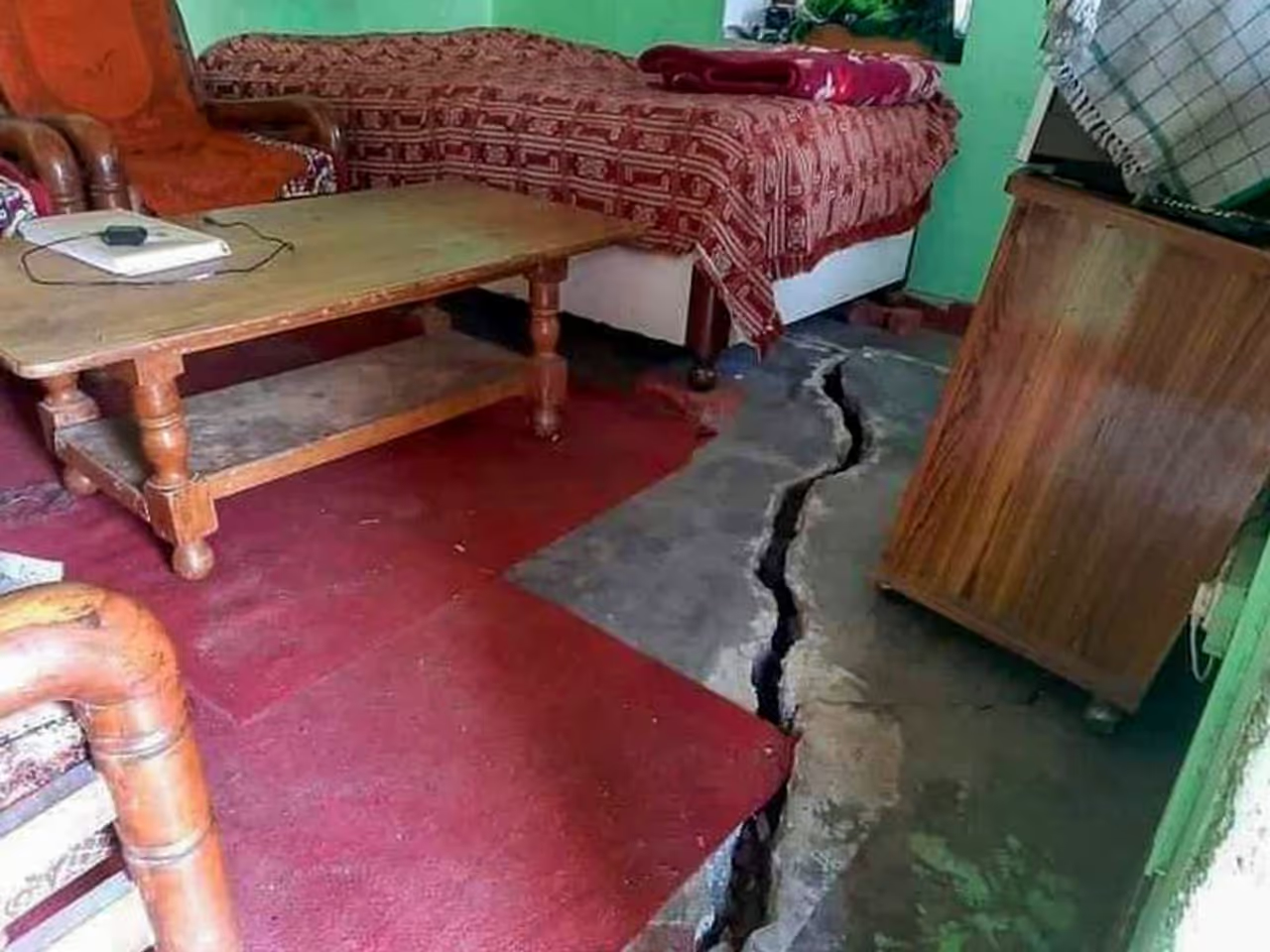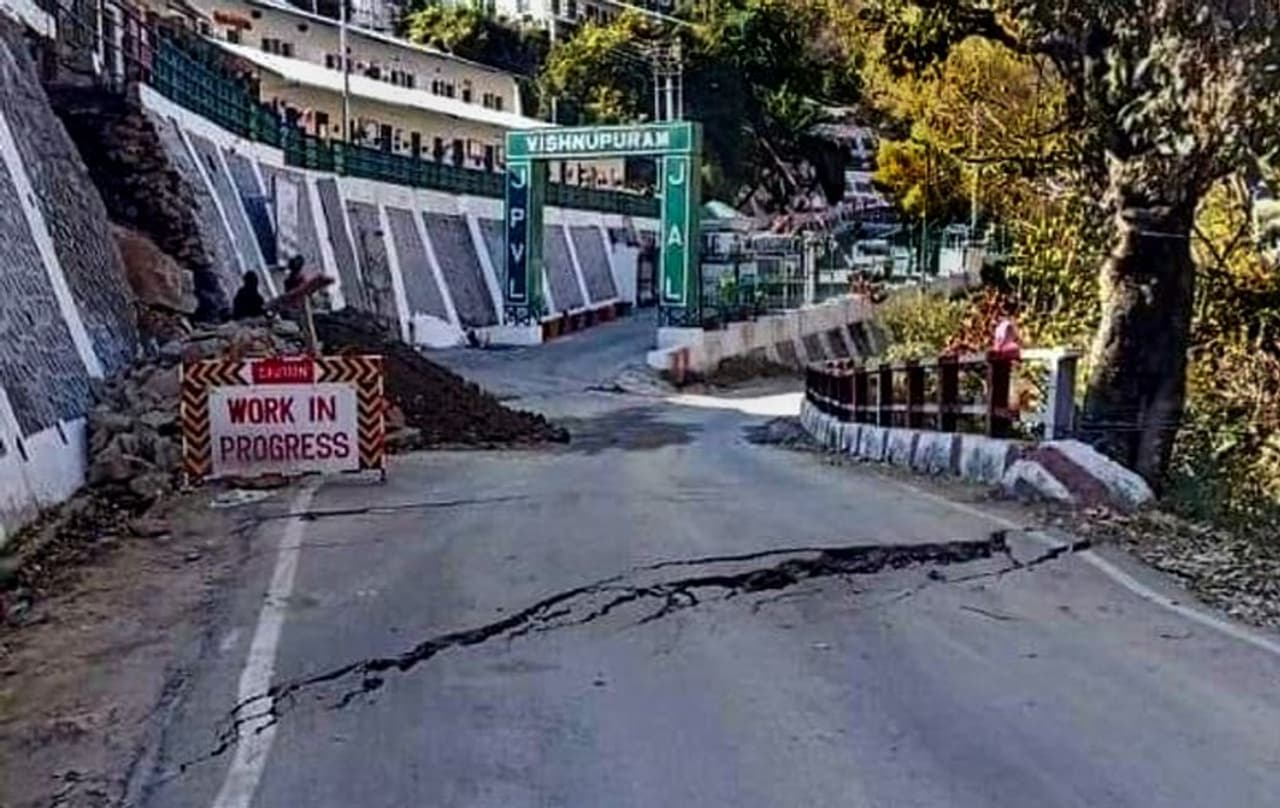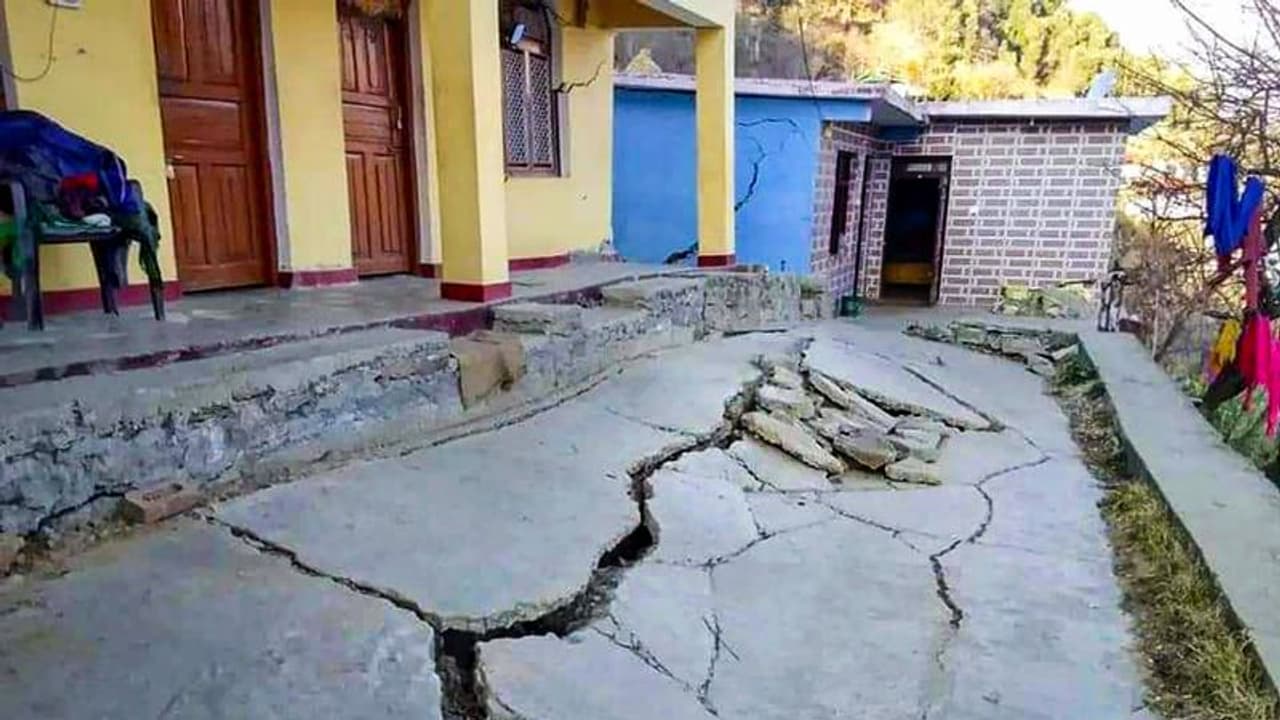"The entire area will change a lot. The ground level will change in many places. It will eventually settle to a particular level. But it will take some time," noted geologist C P Rajendran tells Asianet Newsable
603. That's the number of families that had been evacuated from their homes by authorities in Uttarakhand's Joshimath till the time this report was filed. Lives uprooted, livelihoods disrupted... the story of a 'sinking' Joshimath is one of a tragedy of epic proportions caused by man's vainful desire to dominate a fragile ecosystem.

Ever since news reports of the "cracks" in walls and ceilings of structures and roads in the area emerged, the clamour to protect Joshimath has grown louder. However, the writing seems to be on the wall for Joshimath, which is a cultural, religious and tourist destination.
Asianet Newsable spoke to noted geologist C P Rajendran to understand the situation that Joshimath finds itself in.

The expert said that the government of the day had told the Supreme Court that it wanted to go ahead with the Char Dham project, and they came up with an excuse for the smooth movement of armed forces and material to the border with China. "They got their way, and the Supreme Court also agreed, and they (the government) went ahead with the highway construction, and as part of that, they also started laying Railway tracks. For this, they started tunnelling for kilometres; some of those tunnels are 20-30 kilometres long. This is actually a very intrusive kind of activity in a very environmentally fragile system that exists in the mountains. This could lead to other long-term situations like the draining of spring waters, which are used by the villagers there. All those sources have now dried up," he said.
"In Joshimath also, the situation is created mostly because of the tunnelling which they started executing as part of the Vishnugad Tapovan Hydroelectric project. This is close to that town, Joshimath. It was back in 2010, when they were tunnelling, they actually perforated the aquifer, which is a source of water. The soil is saturated with water. It perforated and started leaking. So much water leaked, and the whole area dried up. It started a long time back. What we see now has been reported several times in the past also, that the sediment has started shrinking because of the drying up of the aquifer. That has led to this kind of sinking and subsidence (caving in) of the ground, which is impacting the buildings there (in Joshimath). They have realised that the situation is too bad; it is not easy to set it right. That is because the sediments that are already there have started shrinking and are getting dried up. So the cracks are being formed and affecting the buildings there," the geologist said.

When asked about what to expect next at Joshimath, CP Rajendran said: "I believe this is the end result of the drying up of groundwater. The groundwater leaves some sort of pressure to hold on to the sediments to be strengthened. When the water drains away, it gets dried up, and the sediments start shrinking, and they start sinking. The situation has now reached a level wherein more and more cracks will develop. Eventually, it will just fizzle out after a while. We do not know when that is going to happen, but by then, there will be a lot of changes in the topography as there will be a lot of depression. It will go on for some time. Finally, the entire area will change a lot. The ground level will change in many places. It will eventually settle to a particular level. But it will take some time. Whatever is happening now will continue to go on for some time."
Talking about the impact in the surrounding areas, CP Rajendran, who was awarded the National Geoscience Award in 2009 for his contributions to the field of disaster management, said: "The problem is that because of the blasting and tunnelling, it has impacted the groundwater sources there. They are either punctured or leaking. You are actually doing very intrusive work there -- blasting the rocks and making huge tunnels through that (the terrain). My fear is that what is happening in Joshimath may be happening in other places and towns as well, wherever such intrusive engineering activities are happening. So one has to understand what is going there before they continue with engineering projects there."
"Essentially, this is not the end. This will lead to lot of landslides. It will happen more frequently there," the geologist said, adding, "Some kind of respect needs to be shown to natural entities and (develop) understanding about how they are going to be impacted by this kind of activities."
